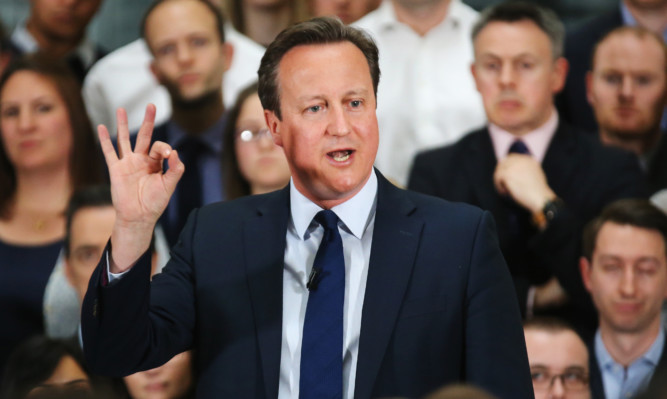David Cameron has refused to say if his family has benefited from offshore tax arrangements detailed in the Panama Papers data leak.
The Prime Minister insisted he has “no shares, no offshore trusts, no offshore funds”, after his late father Ian’s tax affairs were highlighted in the document disclosure.
Labour leader Jeremy Corbyn dismissed suggestions by Downing Street that the family’s tax arrangements were a “private” matter and called for an independent investigation into those implicated by the records.
But Mr Cameron sidestepped calls for a probe and declined to say if his family had reaped the rewards of an offshore arrangement in the past or were likely to in the future.
During a visit to Birmingham, he said: “In terms of my own financial affairs, I own no shares. I have a salary as Prime Minister and I have some savings, which I get some interest from, and I have a house, which we used to live in, which we now let out while we are living in Downing Street, and that’s all I have.
“I own no shares, no offshore trusts, no offshore funds, nothing like that. And so that, I think, is a very clear description.”
He insisted that “no prime minister has done more” to crack down on tax evasion and aggressive tax avoidance.
Mr Cameron’s father ran an offshore fund that avoided ever having to pay tax in Britain by hiring a small army of Bahamas residents – including a part-time bishop – to sign its paperwork, according to The Guardian.
Ian Cameron, who died in 2010, was a director of Blairmore Holdings Inc, which, until 2006, used unregistered “bearer shares” to protect its clients’ privacy.
His use of the firm to help shield investments from UK tax helped build up a significant legacy, part of which was inherited by the Prime Minister.
There is no suggestion that this avoidance arrangement or others exposed by the leak were anything but entirely legal or that Mr Cameron’s family did not pay the UK tax due on any repatriated assets.
Mr Corbyn said he wanted an investigation conducted by HM Revenue and Customs “about the amount of money of all people that have invested in these shell companies or put money into tax havens and to calculate what tax they should have paid over the years”.
The Labour leader said: “It’s a private matter in so far as it’s a privately held interest, but it’s not a private matter if tax has not been paid.
“So an investigation must take place, an independent investigation.”
Mr Corbyn also suggested the Government could intervene to take direct control of the UK’s offshore tax havens.
“If it’s necessary for ministers to intervene because the governments of the Overseas Territories won’t act, they can use an order in council to take control of them immediately,” he said.
The Prime Minister has championed the transparency agenda at a series of international summits, and legislation forcing British companies to disclose who owns and benefits from their activities comes into force in June.
But despite several years of pressure, few UK Crown Dependencies and Overseas Territories – said to make up a large part of the tax havens referred to in the papers – have taken concrete action to open up the books.
